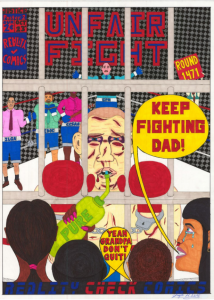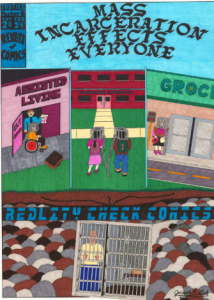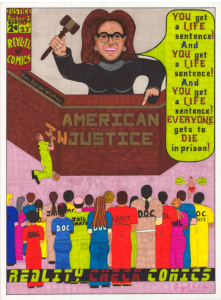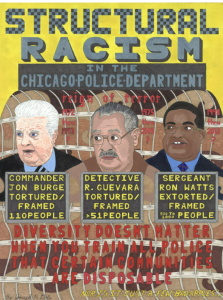Review: Bloc Party of Four
September 19, 2012
One of England’s most favored indie rock quartets, Bloc Party, released their fourth studio album, Four on Aug. 20. This is Bloc Party at their loudest and most cut-throat state of being. This is Bloc Party in the pain they needed to be in after four years. The vocals of Kele Okereke, lead guitar man Russell Lisack, rhythmic bassist Gordon Moakes and technical percussionist Matt Tong gathered to produce a different release in comparison to their former 2008 release, Intimacy; a record in which electronic elements were easier to come by as opposed to the traditional guitar band set up that made Bloc Party the post- punk go-to act that put them on the map in 2005 with their debut album Silent Alarm. With the band returning from a four-year hiatus, each member being formerly preoccupied with their own creative side project, Four isn’t necessarily a “back to basics” record. There are familiar nods to fans but there is also a wave of dabbling in things that are of the bands own potential as a collective.
A standard release of 12 tracks in just over 43 minutes, Four opens with “So He Begins to Lie,” a heavy drum and guitar piece that whirrs in with feedback to introduce the band after a long absence, followed by “3×3” that is a supernatural sadistic treat. The next track, “Octopus” the album’s first single, seems like filler aside from Lissack’s trickery with his tremolo and delay pedals. “Real Talk” is Okereke’s moment as he exclaims “you’re my one and only friend” with emotion and honesty. It is the album’s simplest song, musically and lyrically and it’s the most enjoyable. “Day Four” will send Bloc Party fans back to when they first discovered Silent Alarm, as memories of “So Here We Are” are made up with Moakes’ strange bass arrangement that fits perfectly. Typically, if someone is familiar with Bloc Party, they could point out a song from the vaguest of riffs or drum improvisations, but “Coliseum” changes all of that. It begins as a western soundtrack, dusty spurs, gun holsters and all, until the lyrics “In time you’ll see/ The Empire never ended” trigger a heavy metal onslaught as it transcends to “Pain is hopeful/ Pain holy/ Pain is healthy/ Pain heals.” And “The Healing” is the band’s collective achievement as far as the album is concerned. It’s a reverb-y, slow jazz lounge burn that gives Matt Tong room to breathe around his drum kit as he is relieved of any sign of tension as listeners envision loose limbs clashing the hi-hat just over the heavenly string arrangement.
Four isn’t a perfect album and it will never share the same light as Silent Alarm, but there is always room for growth. It is a project that shows the cramped joints of a band itching to play music together after a long hiatus. With the finished product thoroughly absorbed, the album has legs of its own to stand on without question. If listeners are expecting a second experience of an extended Intimacy phase with samples, synthesizers, bells and whistles, Four will seem like a bust.







